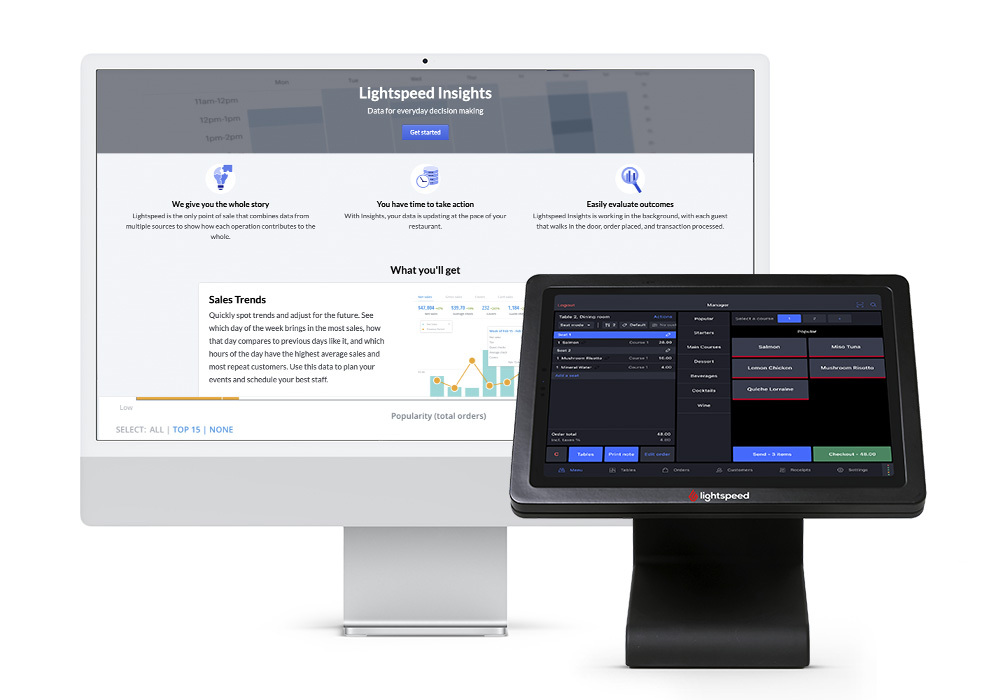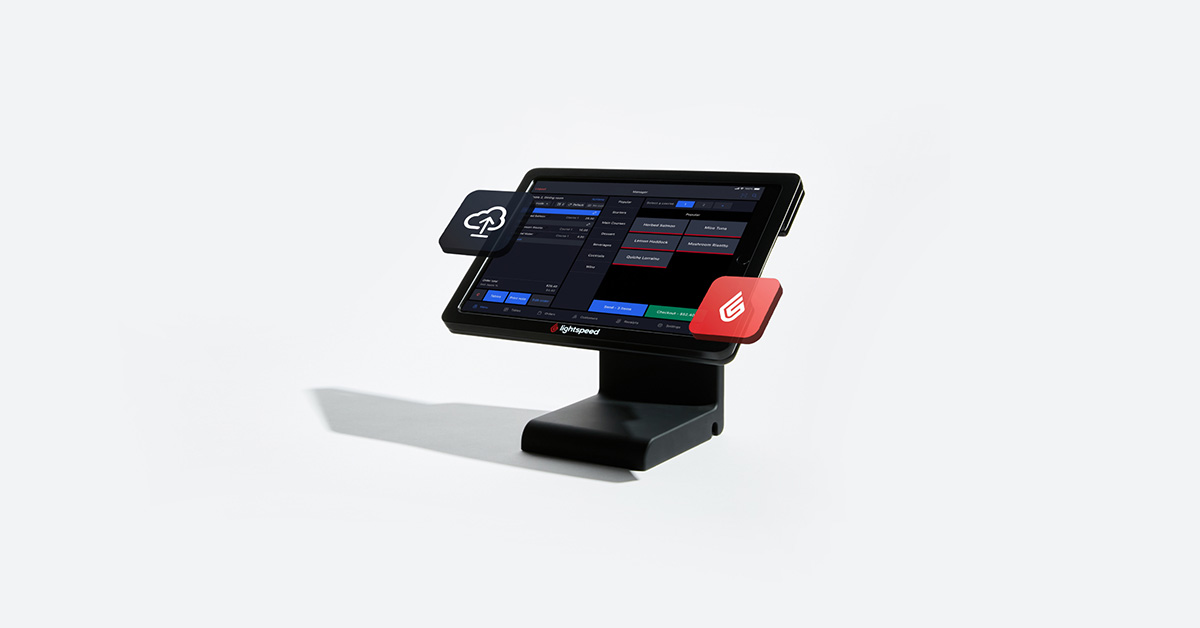
In the dynamic world of hospitality, staying ahead of the curve is not just a goal—it’s a necessity. As we inch closer to 2024, the landscape of restaurants and hotels is undergoing big changes.
Let’s explore some of the key hospitality industry trends that are set to redefine the industry in 2024 and beyond.
- Green initiatives will continue to take center stage
- Expect to see more vegan and plant-based foods on menus
- Contactless technology will become the norm
- Consumers will expect more personalized service
- Use of artificial intelligence (AI) and other cutting-edge tech will ramp up
- Expect a bigger focus on health-centric products and services
- Demand for locally sourced food and experiences will continue to grow
- Hybrid spaces for work and leisure or “bleisure”
- The industry will continue to grapple with labor shortages
- Nimble and flexible restaurants and hotels will thrive
- Prepare for the future of hospitality
- Hospitality trends FAQ
1. Green initiatives will continue to take center stage
Consumers are very concerned with sustainability and want to know that the businesses they support are behaving ethically. Restaurants and hotels are responding with innovative green initiatives, from sustainable sourcing of ingredients to energy-efficient practices.
While sustainable sourcing is a key piece of the puzzle, sustainability extends well beyond the kitchen. We’re seeing hotels and restaurants of all sizes prioritizing eco-friendly practices in all aspects of their operations, from eco-friendly packaging to energy-efficient lighting and waste reduction initiatives.
We want to really push towards being more ecological. Which is one of the things that we’re really focused on now. Composting and recycling, limiting all types of waste that we can. We have to think of the future. If there’s no planet, there’s no restaurant. — James Graham-Simpkins, General Manager, Joe Beef Group of Restaurants

Expect to see a surge in eco-conscious certifications and marketing strategies that highlight a commitment to environmental responsibility.
2. Expect to see more vegan and plant-based foods on menus
With the growing popularity of veganism and rising health and environmental awareness, plant-based menu options will continue growing in popularity.
Expect restaurants to offer more vegetarian, vegan and flexitarian choices made from ingredients like legumes, nuts, vegetables and whole grains to appeal to a broader demographic.
With food inflation, offering more plant-based alternatives can also help restaurants maintain a healthy Cost of Goods Sold (COGS) percentage, as plant-based proteins are generally less expensive than animal products.
3. Contactless technology will become the norm
The global pandemic shifted the adoption of contactless technology into hyperdrive. While consumers were more than ready to ditch the health and safety protocols, you will pry digital and contactless technology out of their cold, dead hands.
From QR code ordering like Order Ahead to contactless payments, the emphasis on cashless transactions will not only enhance guest safety but also streamline operations, reducing wait times and improving overall customer experience.
With the contactless reality and the uncertainty of the future, we know for sure we can keep revenue flowing with tools like Order Ahead. Since launching, 17-20% of revenue comes from Order Ahead. We’ve definitely seen a big return on investment using this tool. — Andrew Bacque, General Manager, Gongfu Bao
Contactless payments will become standard across restaurants and hotels, and restaurants and hotels will need to adapt with flexible and secure payment processing technology.
Lightspeed Tableside is fully EMV, Magstripe and NFC enabled, so restaurants can take more payment methods, whether guests want to swipe, tap or dip their cards, or pay with their mobile phones. Learn more.

4. Consumers will expect more personalized service
Want a competitive advantage in 2023? Recognize that hyper-personalization is where it’s at. This is already true for high-end and boutique hotels, but it’s becoming increasingly important in the restaurant space as well.
Data-driven insights play a pivotal role in tailoring experiences to individual preferences, enabling hotels and restaurants to enhance customer satisfaction, build brand loyalty and grow revenue. For example, using Lightspeed’s Advanced Insights to identify servers who are great at selling wine, then pairing them with guests you know love wine to optimize your average check size.
One of the greatest features we have now that we didn’t have before is capturing customer data. We always encourage our staff to capture, especially our loyal customers, repeat customers, because they’re spending money here and what we want to be able to do is reward that. —Francine Joseph, Business Manager, Boukan
Hotels and restaurants who leverage data and analytics to better understand guest behavior, offer more personalized service and drive sales via targeted promotions will gain a competitive edge.

5. Use of artificial intelligence (AI) and other cutting-edge tech will ramp up
We can’t talk about hospitality industry trends that will transform the industry without talking about technology. In 2024, the integration of artificial intelligence (AI) and other technologies like the Internet of Things (IoT), virtual reality (VR) and augmented reality (AR) will reach new heights.
AI-powered chatbots and virtual assistants will become commonplace in customer service, especially in hotels, to reduce wait times, provide personalized recommendations and streamline reservation processes.
But the applications for artificial intelligence in hospitality are truly endless. We’re already seeing AI being integrated into modern POS systems, enabling hotels and restaurants to automate and streamline many time-consuming processes. We’re likely to see AI topping the list of hospitality industry trends for the foreseeable future.
The hospitality industry is already leveraging AI to enhance operational efficiency and customer experiences. This includes streamlined supply chain management, staff scheduling optimization and data-driven decision-making. Restaurants can effectively incorporate AI tools to adapt swiftly, improve service quality and stay on top of their competitors in a dynamic market. These technologies play a crucial role in creating more efficient and resilient operations for the evolving needs of the industry, while also reducing operating costs. As we progress over time, we will only see more businesses use AI as it continuously improves. — Arnav Mishra, Founder & CEO, DYNE
Expect to see more immersive experiences on the hospitality scene, such as augmented reality (AR) menus or IoT-based games, as businesses look for more ways to increase customer engagement and distinguish themselves from competitors.
6. Expect a bigger focus on health-centric products and services
Wellness and self-care are undeniably on trend right now and show no signs of slowing down. In fact, the wellness industry has transformed into a booming trillion dollar market.
In 2024, the industry will continue to focus on health-centric offerings, from what’s on the menu to in-house fitness programs, spa services, more green spaces and more. Expect to see more hotels investing in spa facilities, state-of-the art gyms and services designed for rest and rejuvenation.
As consumers increasingly view food as medicine, and are willing to pay a premium for health-enhancing products, more restaurants will revamp their menus with healthier options, including gluten-free, lactose-free and organic products.
7. Demand for locally sourced food and experiences will continue to grow
Despite the rising cost-of-living, the “buy local” trend shows no sign of slowing down. Whether they’re concerned about the environment or want to support the local economy, more consumers are choosing to buy from local merchants.
What does this mean for hotels and restaurants?
In 2024, expect to see more restaurants and hotels focusing on local and hyperlocal sourcing, forging closer relationships with nearby farmers, artisans and producers to secure fresh produce, meats, dairy products and more.
But the “buy local” movement extends well beyond the plate. More travelers are choosing experiences over “stuff”, and will continue to be drawn to restaurants and hotels that reflect the local character and charm.
Few have understood the assignment better than award-winning hotel brand Life House Hotels. Each of its 100 properties is designed to reflect the architectural, cultural and historical nuances of the neighborhood. Every dish on its rooftop patio in little Havana features something from their very own garden.
We always look at the characteristics of the property, both the physical characteristics as well as the local culture and heritage. Our hiring practices are consistent too. We believe that’s the most important thing about a successful property. — Peter Litvinenko, Head of Food and Beverage, Life House Hotels

Learn how Life House Hotels creates unforgettable experiences through brand storytelling.
8. Expect to see more focus on hybrid spaces for work and leisure
A shift accelerated by the pandemic, an unprecedented number of companies have adopted a hybrid or flexible approach to work. With more freedom to work from anywhere, we’re seeing a rise in workcations and “bleisure travel”.
Bleisure travel, as the name implies, is a blend of business and leisure travel. Generally, it’s when people add a few extra days to the front or back end of a business trip.
Expect to see more hotels adapting their offerings to meet the needs and wants of this emerging segment. For example, ample plug sockets, free high-speed WIFI, social workspaces, family and dog-friendly accommodations and activities, post-conference travel packages and more.
Restaurants will also want to find ways to capitalize on this growing hospitality trend, given that exploring the city and eating at local restaurants are at the top of the list of what these travelers want. Consider partnering with hotels on travel packages or discounts, and make sure every hotel concierge knows what you have to offer to hotel clients.
9. The industry will continue to grapple with labor shortages
Unfortunately, the hospitality industry’s labor issues are on track to persist in the coming year. According to the Washington Post, nearly 2 million hospitality and leisure jobs remain unfilled and this will likely continue into 2024.
It’s worth revisiting your salary and benefits packages to make sure they’re competitive. Consider offering perks such as flexible work schedules to attract employees, and if your quit rates are off the charts, it may be time to reevaluate your workplace culture.
Technology can also help you weather these labor challenges. Find ways to automate and streamline your operations to reduce manual work. Integrating your tools and systems will enable you to minimize admin work so you can save time.

10. Nimble and flexible restaurants and hotels will thrive
Nobody can say with absolute certainty what the future holds—especially these days. If there’s one thing we know for sure, it’s that 2024 will keep us all on our toes, and the most successful hotels and restaurants will be those who can be quick on their feet.
That means staying agile, flexible and equipped with the tools and technology you need to quickly adapt to the market, such as:
- Robust data and analytics so you can gain insights into your business performance and make informed decisions.
- Inventory management tools that enable you to track and automate your inventory so you never run out of what you need.
- A unified platform that enables you to connect and manage your entire business from a single, customizable ecosystem.
- Integrated payments that give you actionable insights on every transaction, so you can help drive revenue and provide a premium customer experience.
Lightspeed’s unified platform connects your POS, payments, inventory, labor and customer management, marketing and more, so you can run and grow your restaurant your way. Lightspeed is designed to grow with you, with built-in features and modules that enable you to scale and adapt.
Prepare for the future of hospitality
The future of hospitality is bright for customer-centric restaurants and hotels who are continuously leveling up their operations and finding ways to do better with less. At Lightspeed, we’re committed to serving ambitious entrepreneurs who want to succeed and thrive—now and in the future.
Watch a demo to discover why more restaurants choose Lightspeed to grow their business.
Hospitality trends FAQs
What are hospitality trends?
Hospitality trends are consumer behaviors and market changes that indicate the state of the hospitality industry or the direction it may be going. Some hospitality trends (e.g., AI, contactless payments, green initiatives, etc.) are more significant and transformative, while others may be classified as fads that don’t enact long-term or meaningful change.
How do you spot trends in the hospitality industry?
The primary way to spot hospitality industry trends is to conduct market research. By observing and collecting data on the behaviors of consumers and businesses, you can identify trends and draw insights and conclusions. Some types of market research are focus groups, face-to-face interviews, phone surveys and online market research. But, as legendary chef Fred Morin explains, don’t forget one of the best sources of information you have is in-house and completely free—ask your front-of-house staff!
The front of the house talks to people, and more importantly, people talk to the front of the house. Why hire marketing firms and focus groups when we have this in house? — Fred Morin, Co-founder & Co-owner, Joe Beef
Get more industry tips and life advice from Fred here.
What are the biggest challenges in the hospitality industry in 2024?
Looking at the biggest challenges the industry is facing now can also shed light on where it’s heading. Based on what we’ve seen in 2023, restaurants and hotels today are primarily grappling with rising inflation, labor shortages and keeping up with changing consumer behavior.

News you care about. Tips you can use.
Everything your business needs to grow, delivered straight to your inbox.


